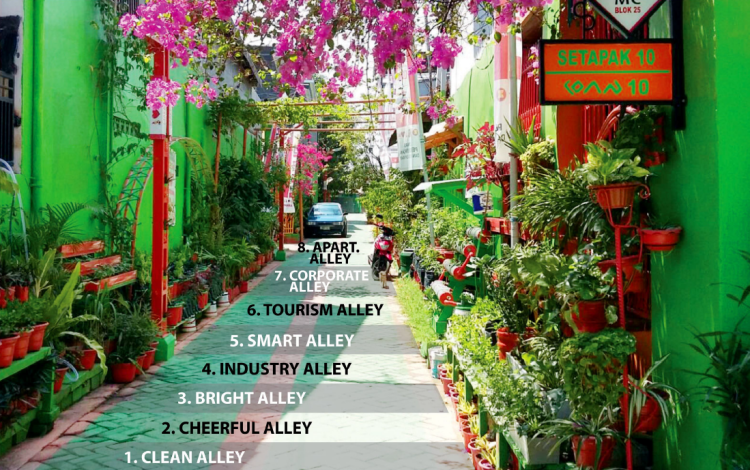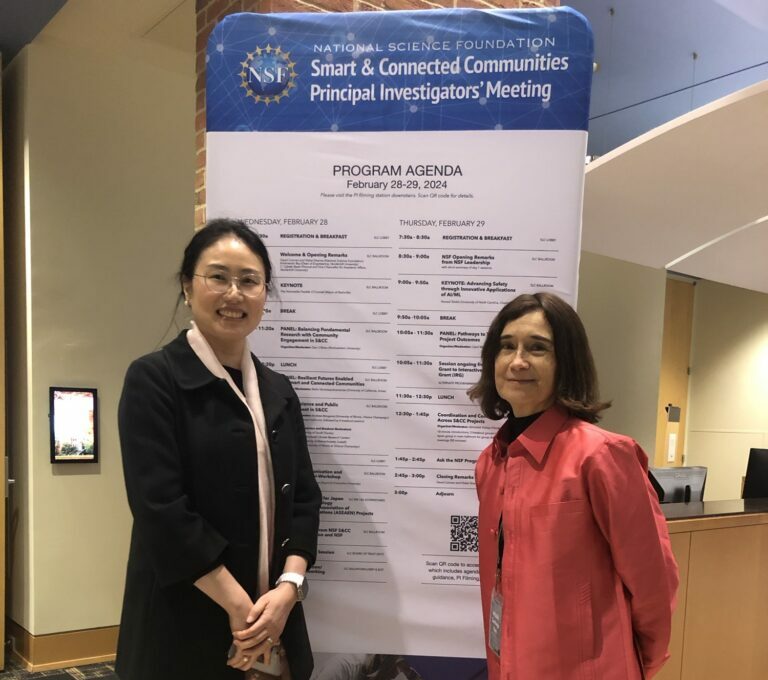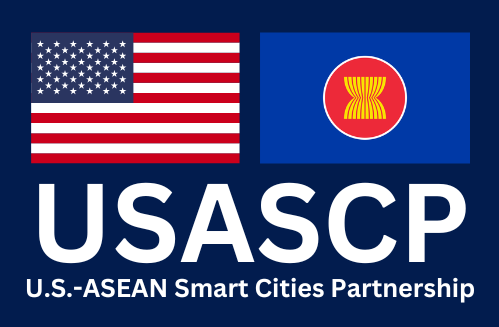
NSF Translates Cutting Edge Research Projects to ASCN Cities
The National Science Foundation (NSF) supported piloting activities and transitioning research from the laboratory to practice in the ASEAN Smart Cities Network (ASCN). Activities addressed a broad set of application domains including transportation and mobility; water management, such as storm water, flooding, and water quality; urban and urban-rural planning; energy delivery and consumption; disaster response and public safety; healthcare; and digital interfaces to provide public services.
Activities
U.S. research expanded pilot activities to one or more ASCN cities, considered the unique character and challenged of those communities, integrated new technologies into ASCN systems, and partnered with industry to commercialize a technology or approach emerging from a research project for performance in a real-world context. Research groups transitioned the research into an ASCN city in close collaboration with representatives from that city and, if appropriate, with researchers at ASCN universities.
Context
The NSF has long been a leader in advancing the foundational science and engineering research and education that will revolutionize cities and communities for the mid-21st century. Partnerships, domestic and international, have been key in ensuring the long-term success of NSF’s investments in smart cities and communities research. NSF has supported this research through a number of programs, most prominently the Smart and Connected Communities Program (S&CC) launched in 2017, which follows a decade of investment in the closely aligned Cyber-Physical Systems (CPS) Program, among others. All programs are committed to piloting activities and transitioning the research from the laboratory to practice.

Points of Contact
Programs
Artificial Intelligence-Based Traffic Monitoring and Planning for Ho Chi Minh City
The Artificial Intelligence-Based Traffic Monitoring and Planning for Ho Chi Minh City project continued development of AI-based anomaly detection and weather-aware traffic planning simulations for Ho Chi Minh City. The project had three papers recently accepted to journals, namely, the Journal of Ambient Intelligence and Humanized Computing, Multimedia Tools and Applications, and the Journal of Artificial Intelligence Review.
Sustainable Energy Bike Lanes in the City of Kuala Lumpur
The Sustainable Energy Bike Lanes in the City of Kuala Lumpur project worked with Sunway City township in Kuala Lumpur, the first smart sustainable low-carbon city in Malaysia, on deployment of the sustainable energy bike lanes. The project team established a new team of three researchers in renewable energy at Monash University Malaysia (MUM), and the principal investigator received a supplemental award from NSF to support project adjustments as he builds a new partnership with MUM.
Smart and Connected Communities (S&CC)
The S&CC Program supported research that integrates social and technical dimensions, through support for scientists and engineers across a range of disciplines, in order to ensure their innovations shape cities and communities in the most productive and effective means possible. In particular, the program focused not just on technological innovation, but also an understanding of how that technology will be utilized by residents. Furthermore, the S&CC program required scientists to engage in meaningful ways with the community in this pursuit—building collaborations with municipal and civic leaders, community organizations, and anchor institutions. Specifically, the program promoted the iterative process of researchers working with local communities and residents to surface challenges they are facing, enabling those challenges to motivate research questions. The process continued as researchers and community partners conducted use-inspired research, piloted and tested innovations in living labs in their very own communities, and then evaluated the success and challenges of these tested solutions. Researchers were also required to have an evaluation plan for assessing short-, medium-, and long-term impacts of the proposed activities.

Smart Garden Alleys Project: USASCP is partnering with the National Science Foundation (NSF) to create carbon neutral communities in Makassar City, the capital of the South Sulawesi province in Indonesia. This project contributes to Makassar City’s transformation into an economic hub, promoting sustainable living and environmental conservation. A supplement to the current project includes the installation of solar panels in three of the garden alleys in place of a diesel generator to power aquaponics and fish farm facilities and spur economic development among low-income communities. See the video below to see more about this project!
Cyber-Physical Systems (CPS)
The CPS Program supported research in engineered systems built from, and dependent upon, the seamless integration of computation and physical components. Advances in CPS enable capability, adaptability, scalability, resiliency, safety, security, and usability that will expand the horizons of these critical systems. CPS technologies are transforming the way people interact with engineered systems, just as the Internet has transformed the way people interact with information. Moreover, the integration of artificial intelligence with CPS offers major societal implications. The CPS program fostered a research community that is committed to advancing education and outreach in CPS and to transitioning CPS research into the real world.
 U.S.-ASEAN Smart Cities Partnership
U.S.-ASEAN Smart Cities Partnership

